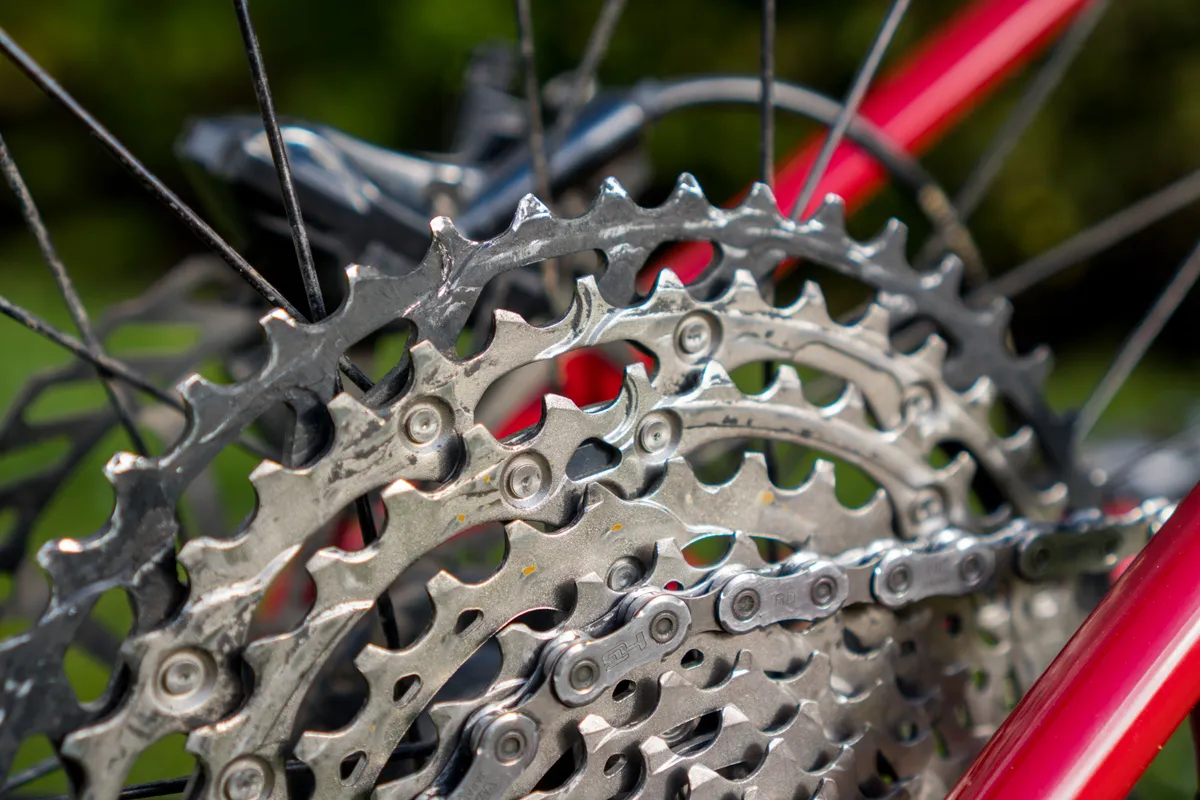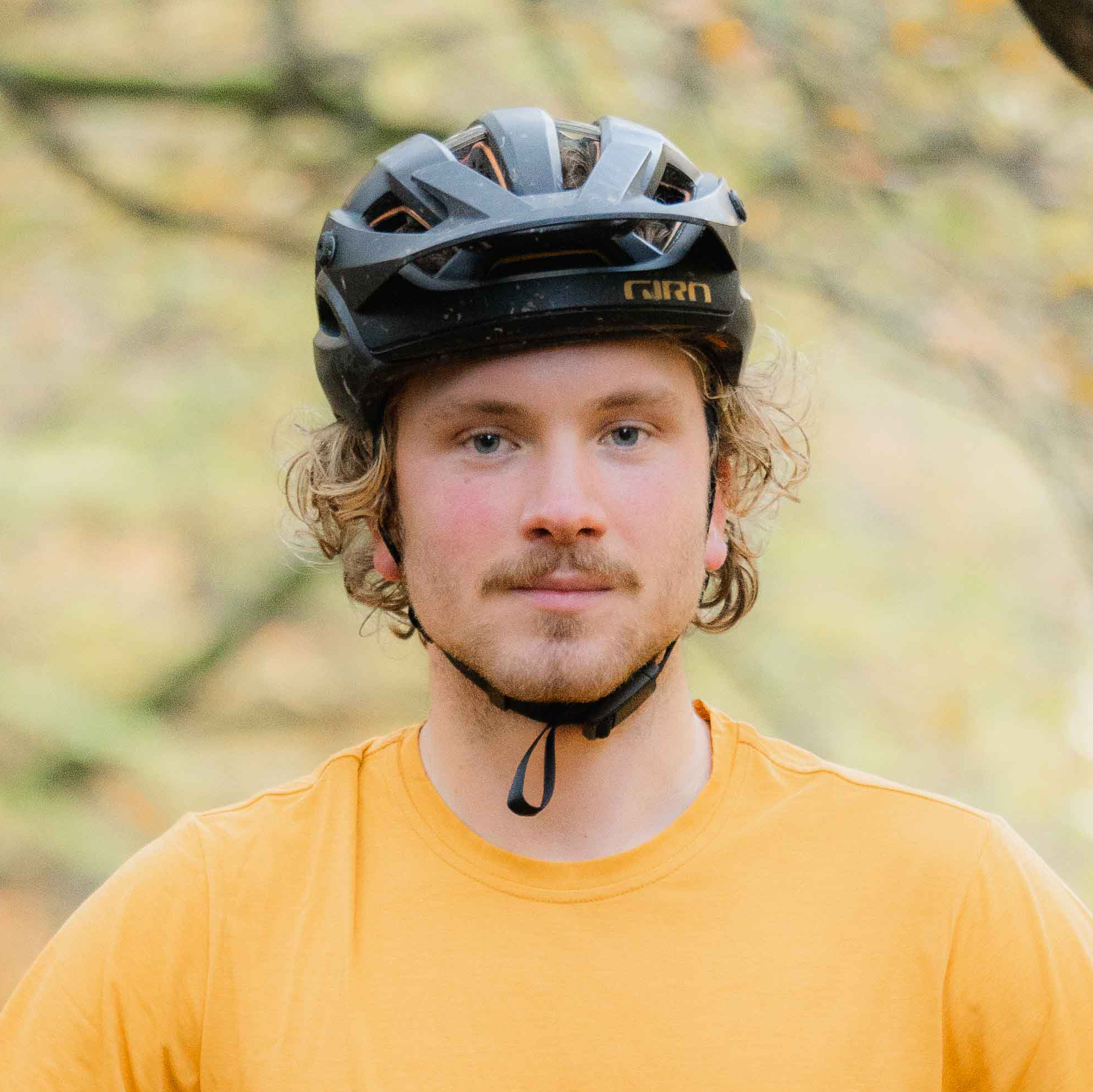At first glance, there might not seem to be much of a difference between Shimano’s Deore and SLX mountain bike drivetrains.
The entry-level Deore and mid-range SLX both have 12-speed cassettes and clutch derailleurs, and there’s just over £100 separating the two.
So you might be left wondering whether you should spend the extra cash on SLX or stick to Deore. Is SLX just a flashier version of the same tech, or does the extra cost equate to better performance on the trail?
In this guide, we explain the subtleties that differentiate the two groupsets to help you decide which one would be the better choice for you.
Who are these drivetrains for and how much do they cost?
Shimano Deore M6100

Deore M6100 is Shimano’s entry-level 12-speed groupset, with a reputation for being affordable and reliable.
Aimed at budget-conscious trail and enduro riders, it borrows many of the key elements of Shimano’s range-topping XTR M9100 system and packs them into a more budget-friendly product.
Shimano SLX M7100

Shimano SLX M7100 is touted as a go-anywhere, do-anything groupset that’s supposed to be as versatile as it is durable.
Like the rest of Shimano’s 12-speed drivetrains, it features a 10-51t cassette range and a Shadow+ rear derailleur with an adjustable clutch. However, SLX has a few tricks up its sleeve that differentiate it from the cheaper Deore.
Price comparison and weights
| Total price (including cranks, chainring, rear derailleur, chain, cassette and shifter) | Total weight (including cranks, chainring, rear derailleur, chain, cassette and shifter) | |
| Deore M6100 | £285.95 / $297.95 | 2,201g |
| SLX M7100 | £398.94 / $394.94 | 1,864g |
Shimano Deore vs SLX
Shifters

The SLX shifter shares all of its technology with the cheaper 12-speed Deore version.
This includes Rapidfire Plus, where three gears can be shifted with one push of the cable-pull lever, as well as 2-Way Release – where the cable-release lever can be operated in two directions by either your thumb or index finger.
Both Deore and SLX shifters also get Shimano’s I-Spec EV technology, enabling them to be integrated onto compatible brake lever clamps for a tidier cockpit.
Derailleurs

The Shimano Deore derailleur features the brand’s tried and tested Shadow RD+ clutch technology.
The derailleur has a low-profile design that reduces the chances of it hitting the chainstay as it pivots over rough terrain, and an adjustable and on/off switchable clutch to reduce chain slap and improve derailleur shifting accuracy.
The steel derailleur cage and jockey wheels, which spin on bushings rather than sealed cartridge bearings, help keep the cost down.
Like the shifter, the SLX derailleur shares all its specs with the more affordable Deore version.
Both rear derailleurs are compatible with 12-speed Shimano cassettes with up to 51t.
Cassettes

The Shimano Deore cassette has a steel construction, which is cheaper to machine but heavier than aluminium. It has a 10-51t profile, giving it a wide 510 per cent range. It uses the brand’s Hyperglide+ tooth design.
The SLX cassette, on the other hand, features an aluminium 51t cassette sprocket, denoted by a black hardening treatment. The remaining 11 cogs are steel.
Both cassettes use Shimano’s Microspline freehub standard, making them compatible with the rest of the brand’s 12-speed range but incompatible with older HG freehub bodies.
Cranksets

The latest Deore cranks don't use Shimano’s long-standing HollowTech technology, where the crank arms are forged as two hollow pieces and bonded together. Instead, they use a forged construction with a reinforced rear to save weight while retaining strength.
The Shimano SLX crankset features Hollowtech II technology (shared with Shimano's premium XT and XTR groupsets). This is an upgrade over the Deore cranks according to Shimano. It claims the technology improves stiffness, while reducing overall weight.
Gear range
Both drivetrains feature 10-51t cassettes with identical ratios. This means they have a 510 per cent gear range, putting them right up there with the best 1x12 drivetrains.
Brakes

Both Deore and SLX groupsets give you the choice between two- and four-piston brakes.
The twin-piston brakes shave a bit of weight and bulk by sacrificing some braking power over the quad-piston versions, which offer maximum braking performance.
The internals of both Deore and SLX brakes are largely similar, with the main difference being the reach adjuster. The more affordable Deore lever gets a tooled reach adjuster, whereas the more expensive SLX has a tool-free version.
Both sets of brakes miss out on Shimano’s Free Stroke adjustment, which enables you to adjust the amount of brake-lever travel before the pads contact the rotor.
Compatibility
Because these groupsets share so many common features, Deore M6100 components get along well with SLX M7100 components. This means you could choose the cheaper Deore groupset and upgrade parts to SLX or above as they wear out.
So, should you choose Shimano Deore or SLX?

Switching to 12-speed gearing is a big upgrade for any mountain biker and both of these Shimano drivetrains make it a relatively affordable option.
We are big fans of the reliability and performance of the cheaper Shimano Deore groupset and would recommend it to any rider looking to upgrade to a 12-speed setup affordably.
While the SLX groupset is also proven to be incredibly reliable and shaves some weight with a few tricks up its sleeve, it’s hard to look past the cash saved if you opt for Deore.
